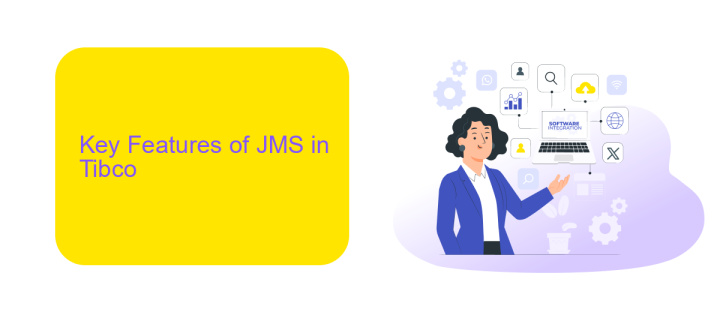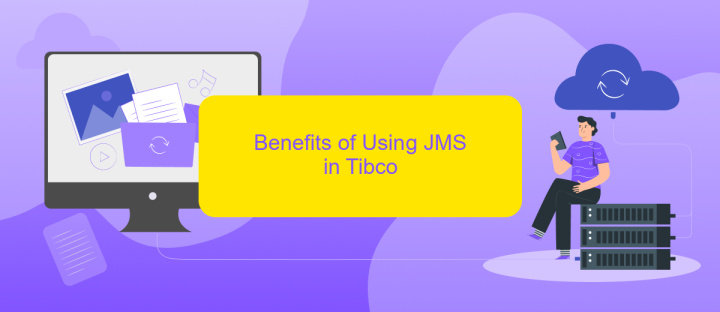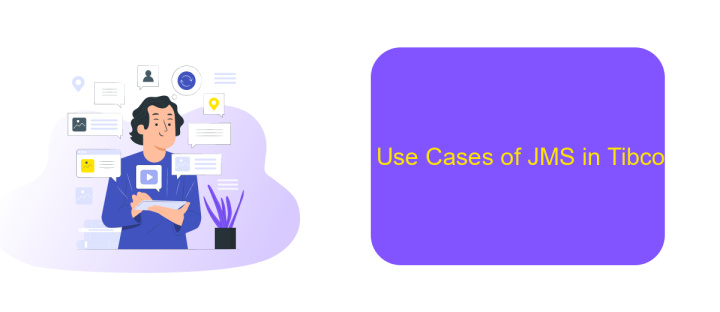What is Jms in Tibco
Java Message Service (JMS) in TIBCO is a messaging standard that allows application components to communicate with each other in a reliable and asynchronous manner. TIBCO, a leader in integration and analytics, leverages JMS to facilitate seamless information exchange across diverse systems. This article delves into the fundamentals of JMS within the TIBCO ecosystem, highlighting its key features and benefits.
Introduction to JMS in Tibco
Java Message Service (JMS) in TIBCO is a messaging standard that allows application components to create, send, receive, and read messages. It is designed to facilitate communication between different systems in a reliable and scalable manner. JMS provides a way to ensure that messages are delivered and processed even in the event of network failures or system crashes.
- Asynchronous Communication: JMS allows applications to communicate without waiting for a response.
- Reliable Messaging: Ensures messages are delivered once and only once.
- Scalability: Can handle a large number of messages and clients.
- Integration: Easily integrates with various TIBCO products and other JMS providers.
Using JMS in TIBCO, organizations can streamline their message-driven processes and improve system interoperability. For those looking to simplify the integration process further, services like ApiX-Drive can be beneficial. ApiX-Drive offers a user-friendly interface for setting up integrations without extensive coding, making it easier to connect various applications and automate workflows efficiently.
Key Features of JMS in Tibco

JMS in Tibco offers a robust messaging framework that ensures reliable communication between distributed systems. One of its key features is its support for both point-to-point and publish-subscribe messaging models, allowing developers to choose the most suitable method for their specific use case. Additionally, Tibco JMS provides high availability and fault tolerance, ensuring that messages are delivered even in the event of system failures. This reliability is crucial for maintaining seamless operations in enterprise environments.
Another significant feature is its seamless integration capabilities. Tibco JMS can easily integrate with various applications and services, including cloud-based solutions like ApiX-Drive. ApiX-Drive simplifies the process of setting up integrations by providing a user-friendly interface and pre-configured connectors, making it easier for businesses to automate workflows and synchronize data across different platforms. This integration capability enhances the overall efficiency and productivity of business processes, allowing organizations to focus on their core activities.
Benefits of Using JMS in Tibco

Using JMS in Tibco offers a range of benefits that significantly enhance the efficiency and reliability of your messaging and integration processes. Here are some key advantages:
- Scalability: JMS in Tibco can handle a high volume of messages, ensuring that your system can scale as your business grows.
- Reliability: With features like message persistence and transaction support, JMS ensures that messages are reliably delivered, even in the event of system failures.
- Flexibility: JMS supports various messaging models such as point-to-point and publish-subscribe, providing flexibility to meet different business requirements.
- Integration: JMS seamlessly integrates with other Tibco products and third-party services like ApiX-Drive, making it easier to connect disparate systems and automate workflows.
- Security: JMS in Tibco offers robust security features, including encryption and authentication, to protect sensitive data during transmission.
Incorporating JMS in Tibco can streamline your messaging infrastructure, improve system performance, and reduce the complexity of integrating various applications and services. Whether you're scaling your operations or enhancing security, JMS provides a robust solution to meet your business needs.
Use Cases of JMS in Tibco

Java Message Service (JMS) in TIBCO is a powerful tool for enabling communication between various applications in a distributed environment. One of the primary use cases of JMS in TIBCO is to facilitate reliable and asynchronous message exchange, ensuring that messages are delivered even in the event of system failures. This capability is especially useful in financial services where transaction integrity and reliability are paramount.
Another significant use case is in the retail industry, where JMS can be employed to manage inventory updates and order processing in real-time. By leveraging JMS, retailers can ensure that their systems are always synchronized, providing accurate inventory levels and improving customer satisfaction.
- Financial transactions and trade processing
- Real-time inventory management in retail
- Order processing and logistics coordination
- Healthcare data exchange and patient record management
Additionally, platforms like ApiX-Drive can be integrated with JMS in TIBCO to automate data transfers and streamline workflows across different applications. This integration simplifies the setup process and enhances the efficiency of business operations, making it easier to maintain data consistency and operational agility.
Comparison of JMS in Tibco with Other Messaging Systems
JMS in Tibco offers robust messaging capabilities that are crucial for enterprise-level integrations. Compared to other messaging systems like Apache Kafka and RabbitMQ, Tibco's JMS is known for its seamless integration with other Tibco products, providing a unified platform for data exchange and process automation. While Apache Kafka excels in handling real-time data streams and RabbitMQ is favored for its simplicity and flexibility, Tibco's JMS stands out for its enterprise-grade reliability and support for complex, distributed environments.
Another advantage of Tibco's JMS is its comprehensive support for various messaging patterns, including point-to-point and publish-subscribe. This versatility makes it suitable for a wide range of use cases, from simple message queuing to sophisticated event-driven architectures. For businesses looking to streamline their integration processes, services like ApiX-Drive can complement Tibco's JMS by offering easy-to-use tools for connecting different applications and automating workflows, thereby enhancing overall efficiency and reducing the time required for system integrations.
- Automate the work of an online store or landing
- Empower through integration
- Don't spend money on programmers and integrators
- Save time by automating routine tasks
FAQ
What is JMS in TIBCO?
How does TIBCO JMS facilitate integration?
What are the key features of TIBCO JMS?
Can TIBCO JMS be integrated with other systems?
What are the common use cases for TIBCO JMS?
Routine tasks take a lot of time from employees? Do they burn out, do not have enough working day for the main duties and important things? Do you understand that the only way out of this situation in modern realities is automation? Try Apix-Drive for free and make sure that the online connector in 5 minutes of setting up integration will remove a significant part of the routine from your life and free up time for you and your employees.


